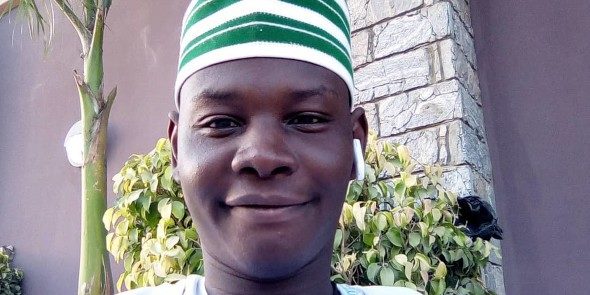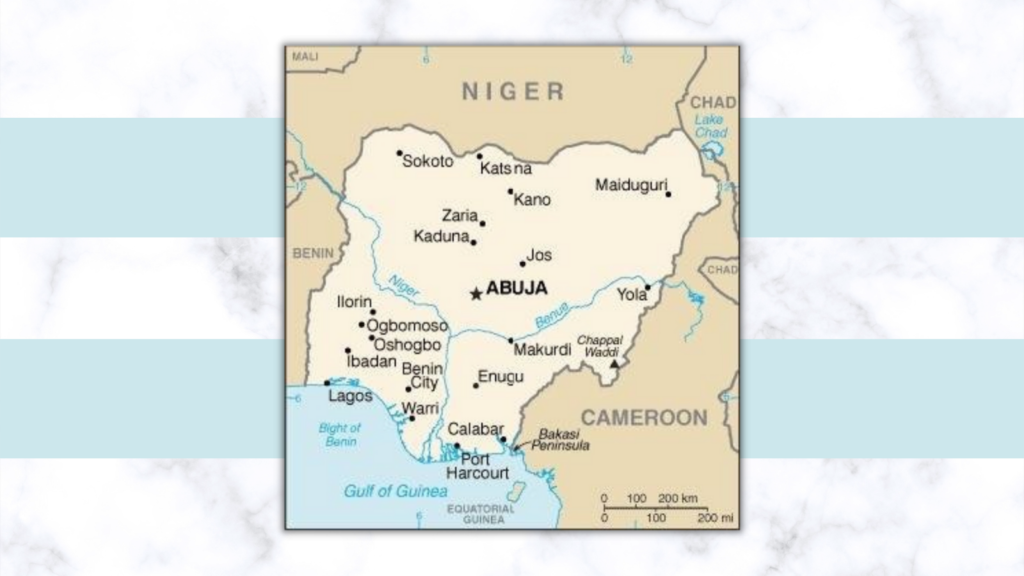By Anthony Akaeze
Baptist News Global
It is probably not difficult to imagine what could be going through the mind of Yahaya Sharif-Aminu, a 22-year-old musician from Kano, northwestern Nigeria, at this time.
For a man accused of blasphemy by the state’s upper sharia court, and whose family home was burned down by people incensed by his alleged crime, Nov. 26 was the day set aside to decide his fate by a Kano High Court. But when the matter came up for hearing, the jurors, after listening to his lawyer and the lawyer for the plaintiff, deferred judgment on it, saying a date for the decision would be communicated to them.
It was the same situation for Omar Farouq, a 13-year-old who was sentenced to 10 years imprisonment for allegedly “using foul language toward Allah in an argument with a friend.” His case, like Aminu’s, elicited concern from child rights agencies like UNICEF, which considers his conviction wrong, stating that it “negates all core underlying principles of child rights and child justice that Nigeria — and by implication, Kano State — has signed on to.”
Aminu, for his part, was accused of writing a song deemed insulting to the prophet Muhammad. The Sharia court passed its judgment in August, months after the musician was alleged to have composed and circulated the song via social media. Following the sharia verdict, the Kano State government led by Abdullahi Ganduje endorsed it, saying it would carry out the death sentence within 30 days if the judgment was not appealed. The appeal did come, leading to Nov. 26.
Farooq and Aminu are represented by lawyers, including Kola Alapinni.
But with the jurors postponing judgment on their matter, the fates of the musician and the teenager still hang in the balance. It would be natural to assume they are focused on how the matter will eventually end. Will they be released or have their convictions confirmed?
In an interview with CNN prior to Nov. 26, Alapinni, the attorney, said the Farouq and Aminu cases are unrelated and that he got to know of Farouq while working on Aminu’s case.
“We found out they were convicted on the same day, by the same judge, in the same court, for blasphemy and we found out no one was talking about Omar, so we had to move quickly to file an appeal for him,” he said. “Blasphemy is not recognized by Nigerian law. It is inconsistent with the constitution of Nigeria.”
While the outcome of the appeal by Farooq and Aminu remains to be seen, debate among Nigerians and people elsewhere continue. In regard to religion, Nigeria, a country of about 200 million people, is neither majorly Muslim nor Christian, as it is inhabited almost in equal number by adherents of the two faiths in the northern and southern regions. The nation’s constitution does not uphold either of the two religions as dominant. In this regard, those opposed to the sharia penal code say that if the ruling is upheld, it would make nonsense of the Nigerian constitution, which recognizes the country’s secular nature.
It is, however, not just Aminu’s or Farooq’s case that has stoked this controversy. In Kaduna State, less than a two-and-half-hour drive by road from Kano, there was the recent case of Rahama Sadau, a Muslim actress, who was accused by some Muslims of posting a picture of herself on social media that elicited comments considered blasphemous to Muhammad. Following that, rumors began spreading that the actress had been summoned to appear before a sharia court, but Fadau later refuted it, saying no one invited her to any sharia court.
These are but recent examples of cases when religion and its doctrine divides Nigerians of different faiths. It isn’t a new phenomenon. In October 1999, Ahmed Sani Yerima, then governor of Zamfara State, in the northwest of the country, revealed the state had decided to adopt sharia law. That elicited varied comments among Nigerians, mainly for or against the decision. The views of those opposed to sharia did not stop other northern states from following Zamfara’s example, bringing the number of northern Nigerian states with majority Muslim populations adopting the sharia justice system to date to 12. To allay fears of non-Muslims, sharia proponents insist the law only applies to Muslims.
In regard to Aminu and Sadau, Nigerian journalist Hauwa Mohammed, in her analysis of the situation, said, “Muslims believe in their law, and whatever act of blasphemy that is committed has a penalty which has to be followed according to the Islamic law.”
In Sadau’s case, Mohammed pointed out that “as a Muslim, that mode of dressing is not ideal for someone that is born and bred in an Islamic home, but when you look at it from a professional angle, some will say it doesn’t matter. To some, it is really out of place. But I think there’s more to be learned from this for the upcoming artists, actors and actresses. No matter the religion, modesty pays a lot.”
Two weeks after the Nigerian high court deferred judgment on Aminu and Farouq’s cases, the U.S. State Department named Nigeria among the world’s 10 worst violators of religious freedom. Other countries on the list are Pakistan, Iran, Burma, China, Eritrea, the Democratic People’s Republic of Korea, Saudi Arabia, Tajikistan, and Turkmenistan.
The disclosure by the State Department came days after the U.S. Commission on International Religious Freedom revealed plans to hold a virtual hearing with the title “Blasphemy Laws and the Violation of International Religious Freedom” as well as release of a new report titled ‘Violating Rights: Enforcing the World’s Blasphemy Laws.”
Prior to this moment, the religious freedom commission, through its commissioner Frederick A. Davie, had announced the adoptions of Mubarak Bala and Yahaya Sharif-Aminu as part of its Religious Prisoners of Conscience Project.
Bala was described as a “a prominent atheist activist and president of the Nigerian Humanist Association,” who was arrested on April 28, 2020, and transferred to Kano State police custody, reportedly for insulting Muhammad in a Facebook post.
Key findings of the report show there are 84 countries across the globe with criminal blasphemy laws on the books as of 2020, and “researchers, using publicly available sources, found 732 reported blasphemy-related incidents from 2014 to 2018 across 41 countries, or 49% of countries with criminal blasphemy laws.”
Of the 732 incidents, 674 were reported cases of “state criminal blasphemy law enforcement.” And of the 674 cases of state enforcement, “mob activity, violence or threats occurred in 78 cases.”
The report further reveals that “of the 732 incidents, 58 were incidents of mob activity, violence or threats around blasphemy allegations that occurred in situations where there was no state enforcement of the blasphemy law,” and “nearly 80% of the incidents of mob activity, violence or threats (with or without state enforcement), took place in only four of the countries: Pakistan, Bangladesh, Nigeria and Egypt.”
In regard to victims of blasphemy, the report states that Muslims accounted for more than half (56%) of the persons arrested, prosecuted or punished for alleged blasphemy crimes. Other groups frequently targeted for criminal blasphemy law enforcement, where identified, included: Christians (25%), atheists (7%), Baha’is (7%) and Hindus (3%). More than one-quarter (27%) of reported cases implicated alleged blasphemous speech posted on social media platforms.
Following the State Department’s listing of Nigeria among the world’s worst violators of religious freedom, the USCIRF backed the decision, saying it wasn’t out of place.
It pointed out, through spokesperson Gayle Manchin, that “Nigeria is the first secular democracy that has been named” such a violator, “which demonstrates that we must be vigilant that all forms of governments respect religious freedom.”
The State Department’s decision on Nigeria was, however, flayed by Lai Mohammed, Nigeria’s information minister. Mohammed rejected the categorization, saying, “Nigeria does not engage in religious freedom violation, neither does it have a policy of religious persecution,” and “victims of insecurity and terrorism in the country are adherents of Christianity, Islam and other religions.’’
Beyond the State Department’s list, not a few persons in Nigeria and beyond ponder how Aminu’s and Farouq’s appeals eventually will play out. Will they gain freedom or have their convictions by the sharia court upheld?
Tony Okoroji, a musician and chairman of Copyright Society of Nigeria, appeals for them to be pardoned.
While stating he was “taken aback” by the sharia court ruling, he pleaded with the Kano authorities to forgive them: “Every artist operates within an environment. The truly radical artist may wish to overturn the norms of the environment in which he operates, but that comes at a cost. The cost in this case is mind boggling.
“A young man’s life (and another’s future) is hanging in the balance,” he concluded. “This is no time for ultimatums. What we are asking for is that his life, and the future of the other, be spared. At a later date, we may argue about the justice or injustice of denying people their rights to freedom of expression.”
EDITOR’S NOTE — On Dec. 7, the United States House of Representatives passed a bipartisan resolution condemning global apostasy, heresy and blasphemy laws. This story illustrates how this concern applies to Nigeria, which has a secular government. This article was originally published by Baptist News Global. To read more articles like this, visit baptistnews.com. This article also appears in TAB News, a digital regional Baptist publication. For more information or to subscribe to the TAB News app, visit tabonline.org/TAB-News-app.






Share with others: